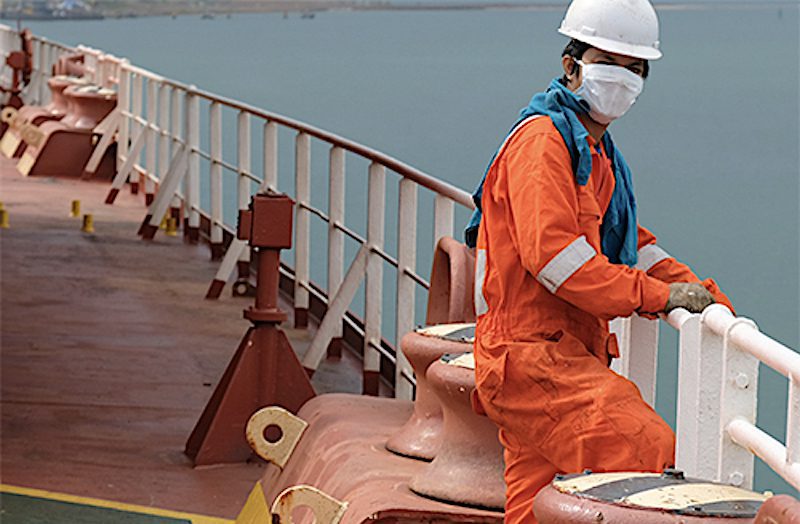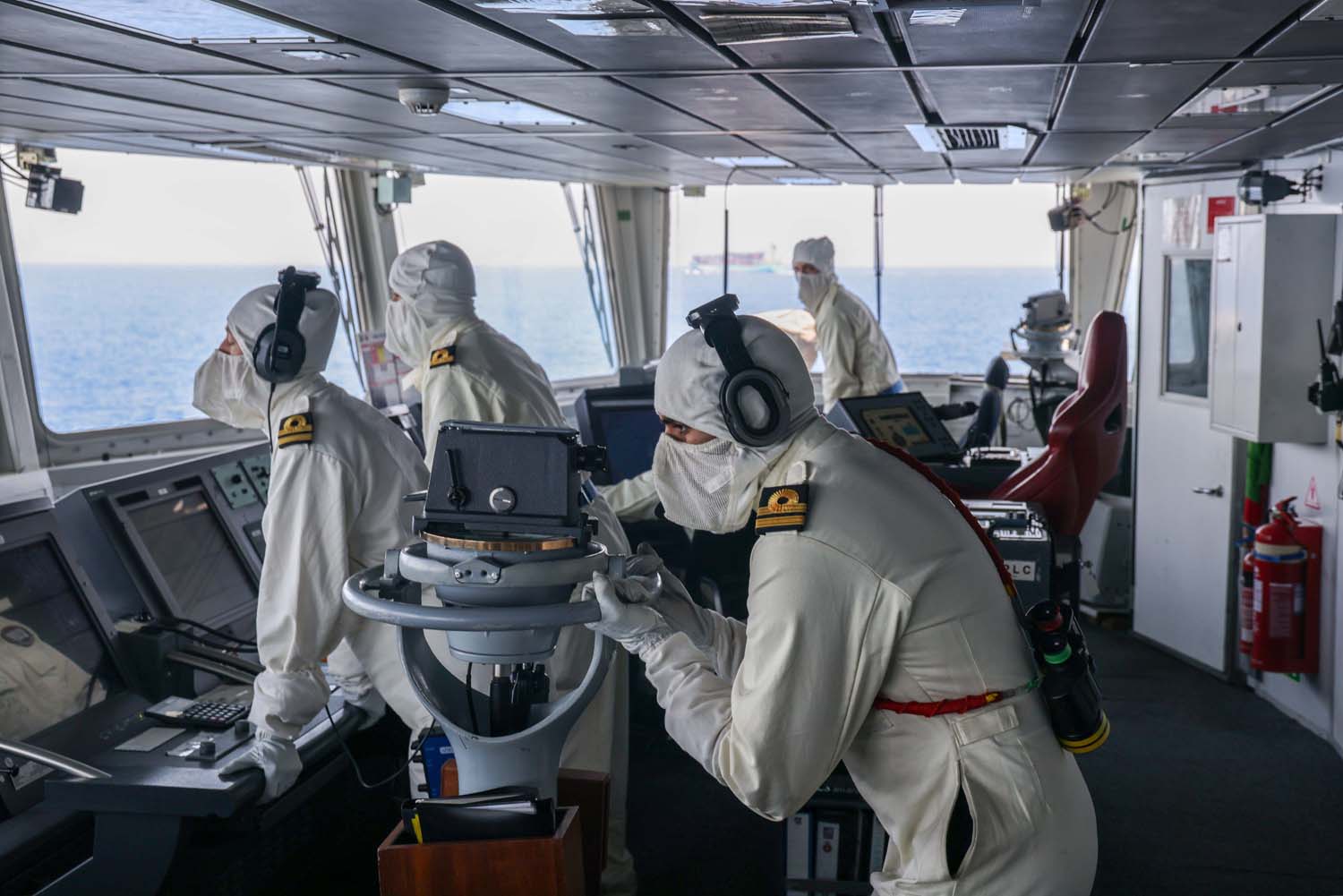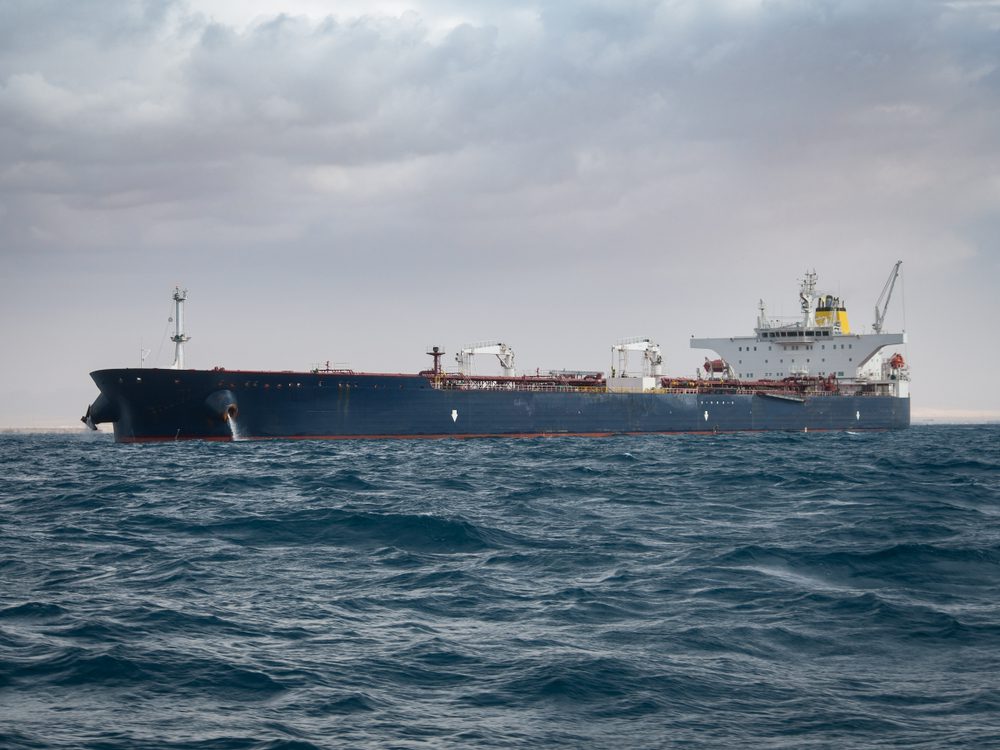The International Chamber of Shipping is raising the alarm on seafarer vaccinations… or lack there of.
The shipping trade group has warned that lack of access to vaccinations for the world’s seafarers puts shipping in a ‘legal minefield’, while leaving global supply chains vulnerable.
A legal document due to be circulated by ICS to the global shipping community later this week highlights concerns that vaccinations could soon become a compulsory requirement for work at sea because of reports that some governments are insisting all crew be vaccinated as a pre-condition of entering their ports.
However, new reporting estimates that developing nations will not achieve mass immunization until 2024, with some 90% of people in over 65 low-income countries standing little chance of vaccination in 2021. This is problematic because the ICS calculates that 900,000 of the world’s seafarers -well over half the global workforce- are from developing nations.
This is creating a ‘perfect storm’ for shipowners, who may be forced to cancel voyages if crew members are not vaccinated, according to the ICS. Shipowners also risk legal and financial damage, not to mention damage to their reputations, by sailing with unvaccinated crews who could be denied entry to ports.
“Shipping companies are in an impossible position. They are stuck between a rock and a hard place, with little or no access to vaccines for their workforce, particularly from developing countries,” said ICS secretary-general Guy Platten.
“We’re already seeing reports of states requiring proof of COVID-19 vaccination for seafarers. If our workers can’t pass through international borders, this will undoubtedly cause delays and disruptions in the supply chain. For a sector expected to help drive the global vaccination effort, this is totally unacceptable,” Platten added.
Delays into ports caused by unvaccinated crew would open up legal liabilities and costs for owners, which would not be recoverable from charterers, the ICS warns. Additionally, while owners would be able to address the need for seafarer vaccines in new contracts, owners attempting to change existing contracts or asking crew to receive a specific vaccine requested by a port could open themselves up to legal liabilities, the ICS says.
The uncertainty comes at a crucial moment in the ongoing role of shipping in the global supply chain during the Covid-19 pandemic.
Shipping is expected to overtake aviation in the race to deliver vaccines around the world in the second half of 2021, in a distribution drive that is estimated to take four years, according to reports. Shipping is also a vital method of transportation for accompanying personal protective equipment (PPE), whose estimated total volume will be 6-7 times that of the vaccine and refrigeration systems, the ICS says.
The ICS notes that seafarers are among the most internationalized workers in the world, crossing international borders multiple times during a contracted period, with up to 30 nationalities on board at any one time. The group’s legal document noted that it is likely that a Covid-19 vaccination “Will be required by most if not all states and therefore [it] would reasonably be considered to be a ‘necessary’ vaccination,” the document states.
The International Chamber of Shipping is currently exploring all avenues to find a solution, including implementing vaccinations hub across key international ports, as suggested by the Cypriot government.
If a solution to provide direct access of vaccines to seafarers is not found, shipowners fear a return to the crew change crisis of 2020 that saw 400,000 seafarers stranded on board ships across the world due to travel restrictions and international lockdowns.
“Many think we’re in a vaccination sprint. The reality is we’re at the start of an ultra-marathon, and seafarers will be key in getting across the finish line,” said Guy Platten. “We need to keep them safe and for governments to play their part by ensuring that vaccines for seafarers have been approved by WHO for emergency use. There are currently more than 50 vaccines each at different stages of testing and approval and only some of these have been recognised by WHO as suitable for emergency use. Yet some states are imposing vaccines for seafarers that are not on the WHO list of vaccines for Emergency Use. If we’re to maintain internationalised workforces, this needs to change immediately.”
Unlock Exclusive Insights Today!
Join the gCaptain Club for curated content, insider opinions, and vibrant community discussions.

 Join The Club
Join The Club













